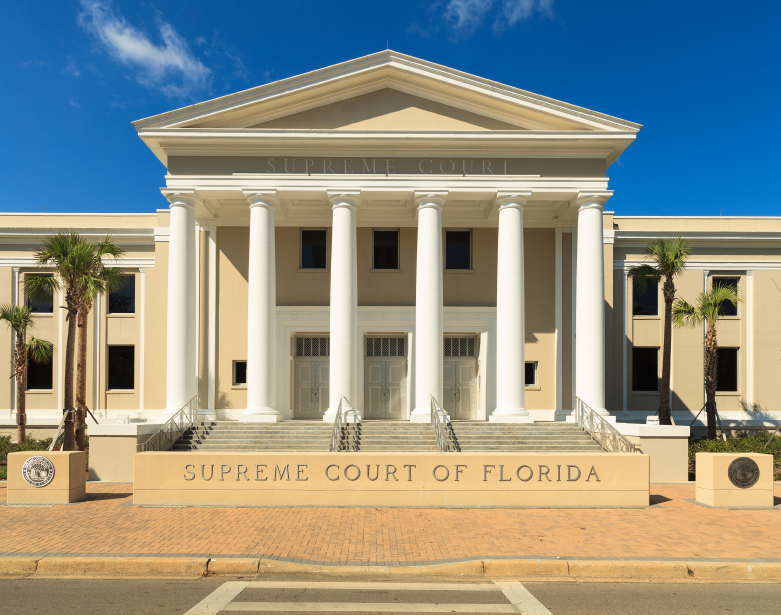Divorce in Florida
The official term for Divorce in Florida is “Dissolution of Marriage.” To be granted a Dissolution of Marriage or Divorce in Florida, either spouse can file a Petition for Dissolution of Marriage. In addition to detailing factual allegations and requests for relief, the Petition must allege that the marriage is “irretrievably broken,” or in some cases, that the other party is incapacitated. Further, in order for the Court to order or grant the Divorce, at least one spouse must have been a Florida resident for six months immediately preceding the date of the divorce filing. If neither party has been living in Florida for the six-month period prior to filing and no other court will hear the Divorce, some exceptions may allow the Divorce to be granted under Florida law. If you have questions about filing for divorce in Florida, including questions about jurisdiction or venue, you should discuss the unique circumstances of your family with an experienced Florida attorney.
No-Fault Divorce
Florida is a “No-Fault Divorce” state, meaning that the court is not interested in who is to blame or whose fault it is that the couple is divorcing. Of course, the facts of each case are important for other reasons, including alimony, property distribution, child custody and other children’s issues, but proving a “fault” is not necessary to obtain a Divorce in Florida.
The Divorce Process
A Florida divorce begins with the spouse known as the “Petitioner” filing a Petition for Dissolution of Marriage. The filing of such a Petition commences, or begins, a civil lawsuit. The other spouse, or the “Respondent,” should receive a copy of the Petition and supporting documents, often with a Summons issued by the Court and delivered, or “served,” by a Process Server. The Respondent has twenty (20) days after being served to file an “Answer” or other response to the Petition. The Respondent can also file a Counterpetition against the Petitioner, which the Petitioner would then have to answer. Since the court cannot award any relief that is not asked for in the Petition or Counterpetition, it is crucial to consult with an experienced divorce attorney to make sure all your bases are covered from the beginning. The way the divorce process begins often sets the tone moving forward.
After the petitions and supplemental documents are filed, the parties exchange “discovery” by providing various financial disclosures, sworn statements, and documentary evidence to the other. Discovery can be time-consuming and complex if either or both of the parties are self-employed, work for a family business, own complex business interests, own foreign property or interests, or are employed in a foreign jurisdiction. Discovery can also be complicated if there are allegations of adultery or if there is no trust between the parties for other reasons.
If there are children of the marriage, a parenting plan, containing a time-sharing schedule, will need to be agreed to between the parties or otherwise ordered by the Court. An award of child-support should also be made, based on variables including the incomes of each party, certain child-related expenses, and the number of overnights each party spends with the children.
As of July 2023, there is now a rebuttable presumption that equal time-sharing is in the best interests of the children when creating a parenting plan. In order to overcome the presumption, a party must prove by a preponderance of the evidence that equal time-sharing is not in the “best interests” of the minor children.
For many parties, child-related issues are paramount, but issues including property division, alimony, and attorney’s fees and costs must also be settled or resolved by the Court.
If there are few issues and a general agreement exists between the parties, negotiations can take place early on and it is possible to settle the case quickly and cost effectively. Ultimately, most divorces are settled through a process known as Mediation, whereby each spouse and their attorneys meet with a neutral, unbiased, third-party professional who is trained in mediation. During the mediation process, the mediator helps guide the parties closer to the middle on any issues between them, in an attempt to reach a settlement that everyone can live with.
If the parties impasse or otherwise fail to come to an agreement at mediation, and they do not want to mediate again, the case can move forward to Trial, or Final Hearing. Trial preparation is a necessary part of every case, so that each client is able to present his or her case in the most advantageous way. It is important to have a family lawyer who is not afraid to bring your issues before a judge. However, parties should only move forward with trial after carefully considering the emotional and financial costs of going to trial as compared to the benefits of settling the case.
![]() Click here to speak to an experienced Divorce Attorney with Levinson & Capuano, LLC: (954)703-2110
Click here to speak to an experienced Divorce Attorney with Levinson & Capuano, LLC: (954)703-2110
Click here for information about contacting Levinson & Capuano, LLC.
Revised: Aug 2023
To learn more about Divorce in Florida Choose your Next Topic:
 |
 |
 |


